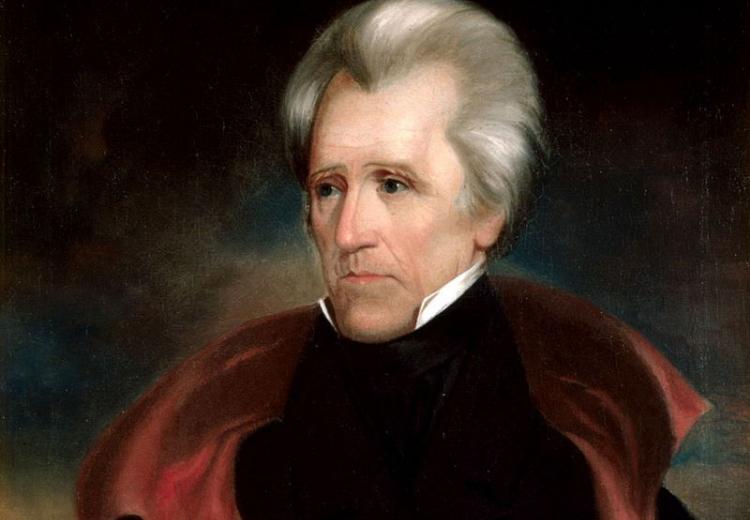The 1828 Campaign of Andrew Jackson and the Growth of Party Politics

Portrait of Andrew Jackson, the seventh president of the United States.
Changes in voting qualifications and participation, the election of Andrew Jackson, and the formation of the Democratic Party—due largely to the organizational skills of Martin Van Buren—all contributed to making the election of 1828 and Jackson's presidency a watershed in the evolution of the American political system. The campaign of 1828 was a crucial event in a period that saw the development of a two-party system akin to our modern system, presidential electioneering bearing a closer resemblance to modern political campaigning, and the strengthening of the power of the executive branch.
In this unit, students analyze changes in voter participation and regional power, and review archival campaign documents reflecting the dawn of politics as we know it during the critical years from 1824 to 1832.
Guiding Questions
How did changes in the electorate affect the election of 1828?
How were party politics reflected in the campaign of 1828?
What was the source of Andrew Jackson's popularity?
How did the election of Andrew Jackson change the function of party politics and elections in the U.S.?
Learning Objectives
Examine how the franchise was extended in the first half of the 19th century and how this affected elections and political parties in the U.S.
Evaluate the impact of changes in voting participation on the election of 1828.
Analyze maps, graphs, and images to determine how regional factors influenced the voting results in the election of 1828.
Evaluate the short and long-term effects of the election of 1828 on voting and elections in the U.S.
